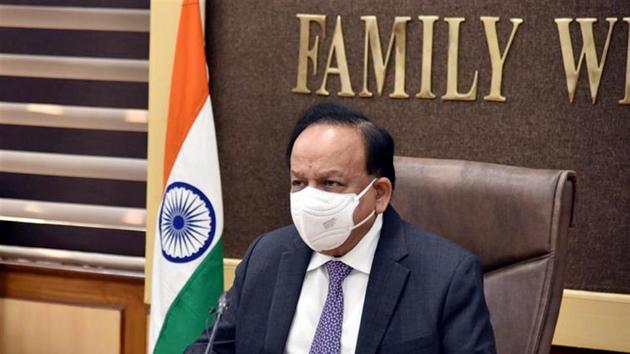‘Maybe in January’: Harsh Vardhan on first Covid-19 shot
The Drugs Controller General of India is examining the applications of Bharat Biotech, Serum Institute of India and Pfizer to grant emergency use authorisation for their Covid-19 vaccines.
Union health minister Harsh Vardhan said on Sunday that people of the country could get a Covid-19 shot in January. His remarks comes days after the health ministry released a document, answering public queries on vaccination.

“Our first priority has been safety and effectiveness of vaccines. We don’t want to compromise on that. I personally feel, maybe in any week of January, we can be in a position to give first Covid vaccine shot to people of India,” news agency ANI quoted Vardhan as saying.
The Drugs Controller General of India (DCGI) is examining the applications of Bharat Biotech, Serum Institute of India (SII) and Pfizer to grant emergency use authorisation for their Covid-19 vaccines. Last week, the Centre had said that the DGCI has sought more data from these companies but it will not impact the timeline of vaccine rollout.
Also Read: Second Covid-19 vaccine authorized in US ships out
The National Expert Group on Vaccine Administration for Covid-19 (NEGVAC), headed by NITI Aayog member Dr VK Paul, has recommended that 10 million healthcare staff, 20 million frontline workers and 270 million people over the age of 50 or with co-morbidities be given the vaccines on priority once it becomes available.
The high-level group of ministers (GoM) on Covid-19 met on Saturday where Dr Paul made a presentation on three critical aspects of vaccination as well as the details of the six vaccine candidates undergoing trial in India.
Apart from discussions on vaccines, the GoM, which met for the first time since October, was also provided data on the current situation of the infection in the country by the director of the National Centre for Disease Control Dr Sujeet Singh.
Also Read: Health ministry calls urgent meeting of key group after new strain of Covid-19 found in UK
He presented an analysis of the pandemic in each state, pointing out critical parameters like positivity rate, breakup of the proportion of rapid antigen test and RT-PCR, concentration of cases in particular districts, and fatality within 48 and 72 hours of hospitalisation.






